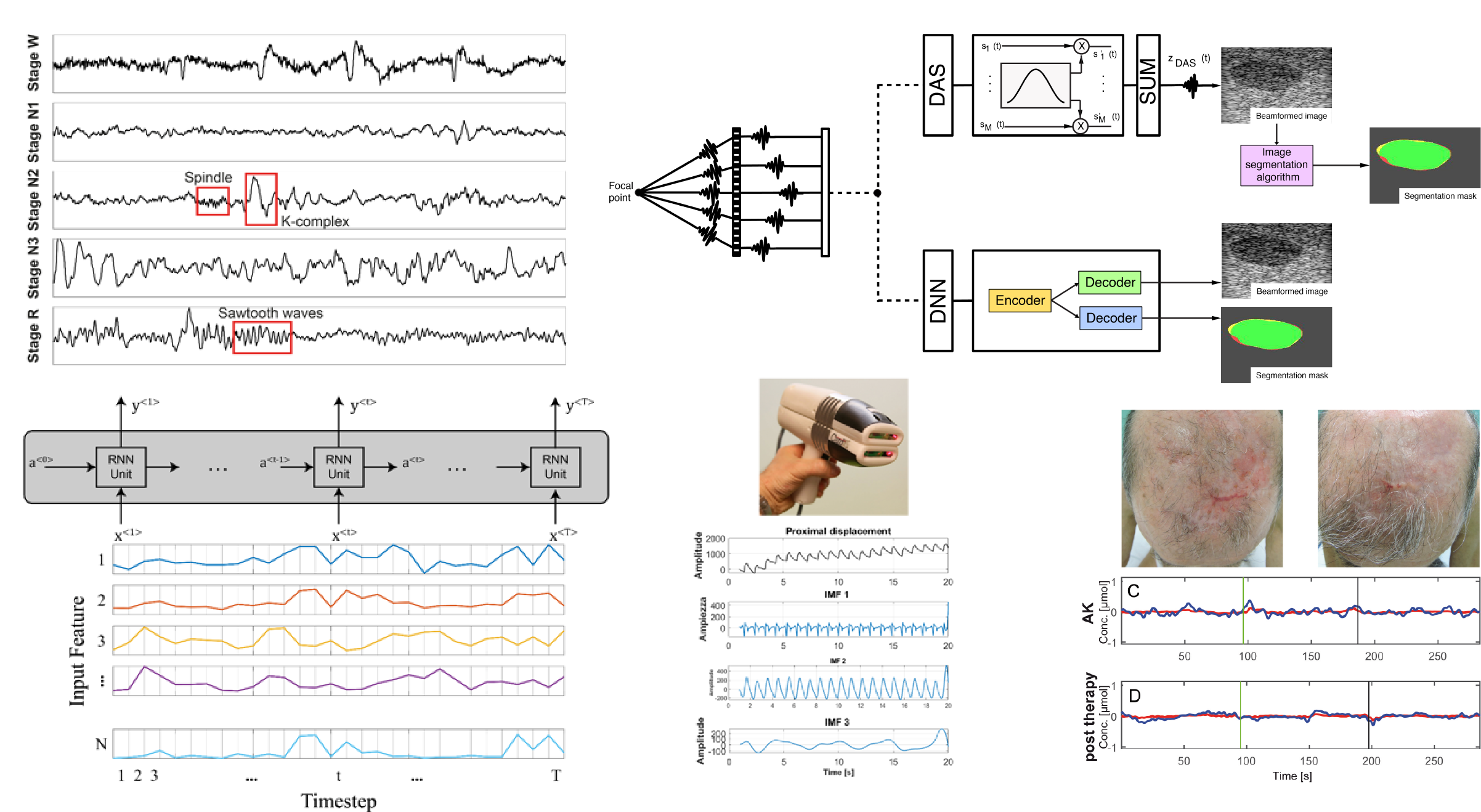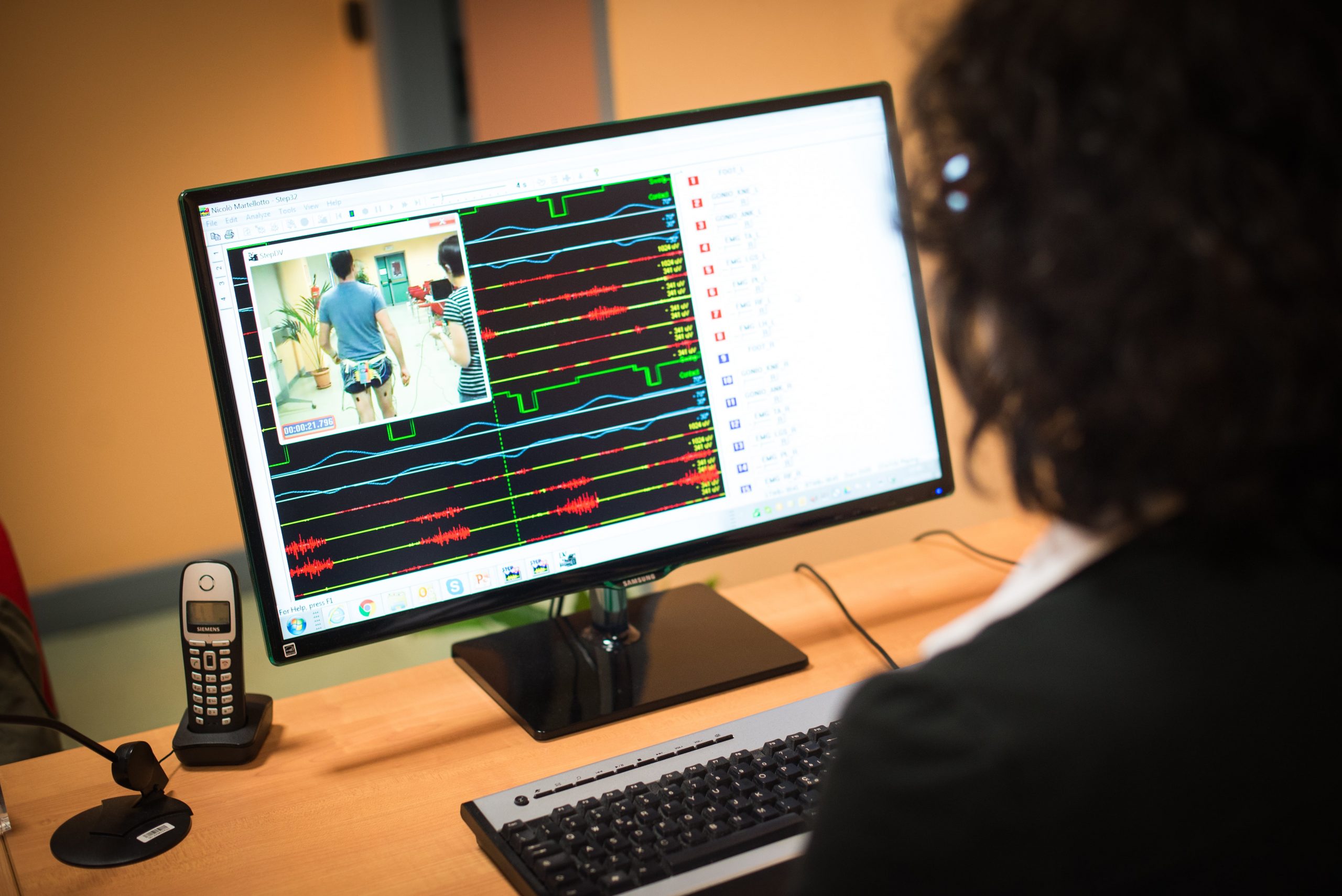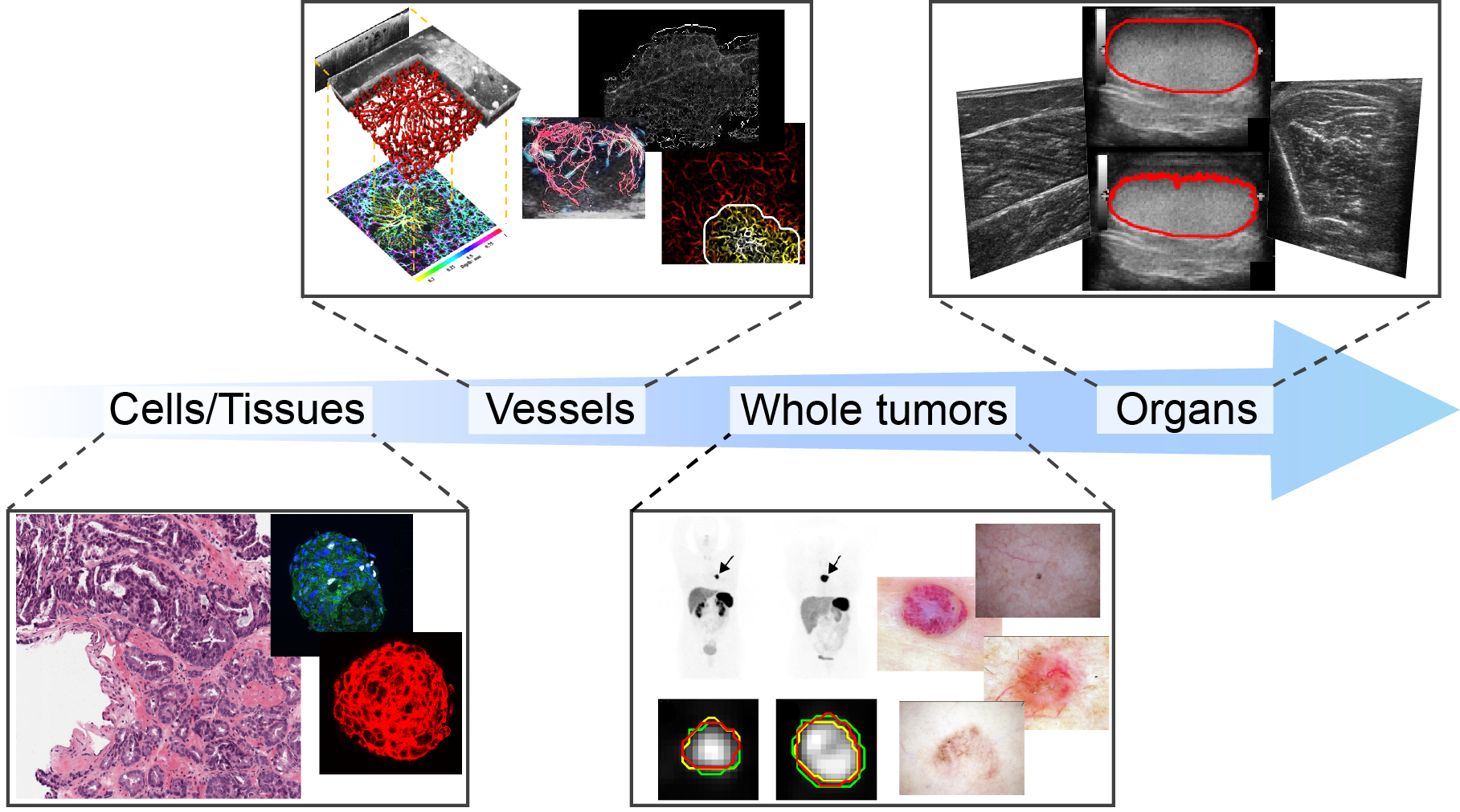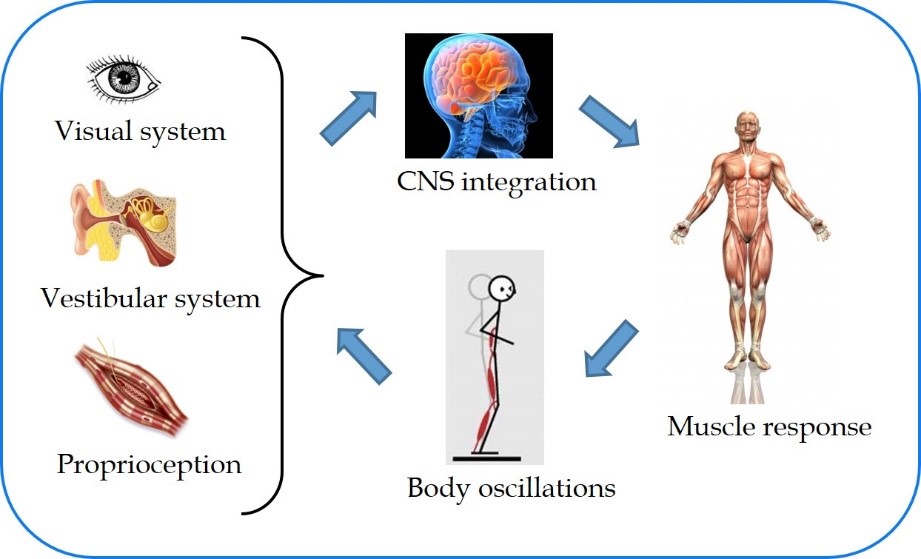Artificial Intelligence in Healthcare
Biomedical Signal and Data Processing

The recent advances in modern signal processing techniques have improved the accuracy and reliability of medical diagnoses. The most recent trends in data-based diagnostic tools include three principal keywords: big-data, multichannel analysis and radiomics. The main goal is the ability of processing larger and more heterogeneous information, which is extracted from high-dimensional digital data, to solve more and more complex diagnostic problems.
Our research group is focused on the development of new theoretical frameworks and innovative algorithms applied to biomedical signals, motivated by the concept that the analyzed signals contain information that reflects underlying pathophysiology and that these relationships can be revealed via quantitative signal analysis.
Clinical Process Modelling
Design of Biomedical Instrumentation
Human Motion Analysis

Medical Device Software
Medical Image Analysis using Innovative Intelligent Systems

Medical imaging is crucial for assessing, diagnosing, monitoring, and treating physiological and pathological systems. The dawn of digital medical imaging opened the door for the opportunity of developing computer-aided-diagnosis and innovative intelligent systems on a multi-scale level.
Our research group has a firm foundation on traditional image processing techniques which has been built upon with the addition of innovative intelligent systems. Our expertise covers numerous imaging modalities with a solid basis on multi-scale levels, ranging from the single cell level up to the whole organ level.
Neuroengineering

A wide range of different research activities is carried out to study the human brain and, more generally, the Central Nervous System (CNS), with applications to neurorehabilitation, and the assessment of electroceutical therapies (e.g., Deep Brain Stimulation in Parkinson’s disease patients).
From the development of algorithms to control Brain Computer Interfaces (BCIs) to the design and validation of digital biomarkers for the evaluation of the motor control in neurological patients, the group has a solid experience in the acquisition and processing of CNS signals, including electroencephalography (EEG), electromyography (EMG), and Near-Infrared Spectroscopy (NIRS). Artificial Intelligence (AI) techniques are adopted to cope with the complexities of neurorehabilitation challenges.
Human behavioral states such as stress, meditation, and sleep stages can be thoroughly analyzed, and neuro-feedback can be provided during breathing or mental exercises. In addition, how the brain controls movements can be investigated non-invasively, thanks to the reconstruction of the neural commands expressed during a motor task (examples of applications: ergonomics, workload assessment, gait Holter, postural balance analysis, sports gesture analysis, and exoskeletons control). Furthermore, the design, implementation, and validation of “dual task” protocols allows for evaluating the performance of subjects synchronously involved in motor and cognitive tasks, to assess possible modifications of their attentional resources.
Read more...Telemedicine
SEARCH
NEWS
- Un ponte tra medicina, tecnologia e Parkinson: innovazione al servizio della qualità della vita January 18, 2026
- È del Politecnico una delle due tesi vincitrici del Premio Tesi SIAMOC 2025 October 8, 2025
- IX GNB 2025 Congress December 1, 2024
- Fabrizio Sciscenti wins the “Vincenzo Tagliasco 2024” Award October 26, 2024
- Premi GNB 2024 – Gruppo Nazionale BioIngegneria May 1, 2024
RECENT PUBLICATIONS
-
A new telemonitoring feature for detection of long-term CPAP adherenceJanuary 18, 2026/0 Comments